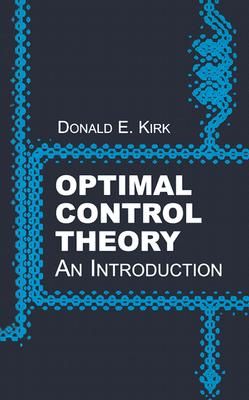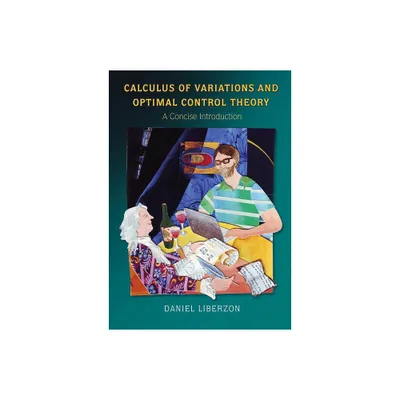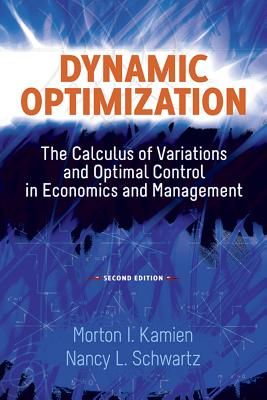Home
Optimal Control Theory: Applications to Management Science and Economics
Loading Inventory...
Barnes and Noble
Optimal Control Theory: Applications to Management Science and Economics
Current price: $159.99


Barnes and Noble
Optimal Control Theory: Applications to Management Science and Economics
Current price: $159.99
Loading Inventory...
Size: OS
*Product Information may vary - to confirm product availability, pricing, and additional information please contact Barnes and Noble
This new 4
th
edition offers an introduction to optimal control theory and its diverse applications in management science and economics. It introduces students to the concept of the maximum principle in continuous (as well as discrete) time by combining dynamic programming and Kuhn-Tucker theory. While some mathematical background is needed, the emphasis of the book is not on mathematical rigor, but on modeling realistic situations encountered in business and economics. It applies optimal control theory to the functional areas of management including finance, production and marketing, as well as the economics of growth and of natural resources. In addition, it features material on shastic Nash and Stackelberg differential games and an adverse selection model in the principal-agent framework.
Exercises are included in each chapter, while the answers to selected exercises help deepen readers’ understanding of the material covered. Also included are appendices of supplementary material on the solution of differential equations, the calculus of variations and its ties to the maximum principle, and special topics including the Kalman filter, certainty equivalence, singular control, a global saddle point theorem, Sethi-Skiba points, and distributed parameter systems.
Optimal control methods are used to determine optimal ways to control a dynamic system. The theoretical work in this field serves as the foundation for the book, in which the author applies it to business management problems developed from his own research and classroom instruction. The new edition has been refined and updated, making it a valuable resource for graduate courses on applied optimal control theory, but also for financial and industrial engineers, economists, and operational researchers interested in applying dynamic optimization in their fields.
th
edition offers an introduction to optimal control theory and its diverse applications in management science and economics. It introduces students to the concept of the maximum principle in continuous (as well as discrete) time by combining dynamic programming and Kuhn-Tucker theory. While some mathematical background is needed, the emphasis of the book is not on mathematical rigor, but on modeling realistic situations encountered in business and economics. It applies optimal control theory to the functional areas of management including finance, production and marketing, as well as the economics of growth and of natural resources. In addition, it features material on shastic Nash and Stackelberg differential games and an adverse selection model in the principal-agent framework.
Exercises are included in each chapter, while the answers to selected exercises help deepen readers’ understanding of the material covered. Also included are appendices of supplementary material on the solution of differential equations, the calculus of variations and its ties to the maximum principle, and special topics including the Kalman filter, certainty equivalence, singular control, a global saddle point theorem, Sethi-Skiba points, and distributed parameter systems.
Optimal control methods are used to determine optimal ways to control a dynamic system. The theoretical work in this field serves as the foundation for the book, in which the author applies it to business management problems developed from his own research and classroom instruction. The new edition has been refined and updated, making it a valuable resource for graduate courses on applied optimal control theory, but also for financial and industrial engineers, economists, and operational researchers interested in applying dynamic optimization in their fields.


















